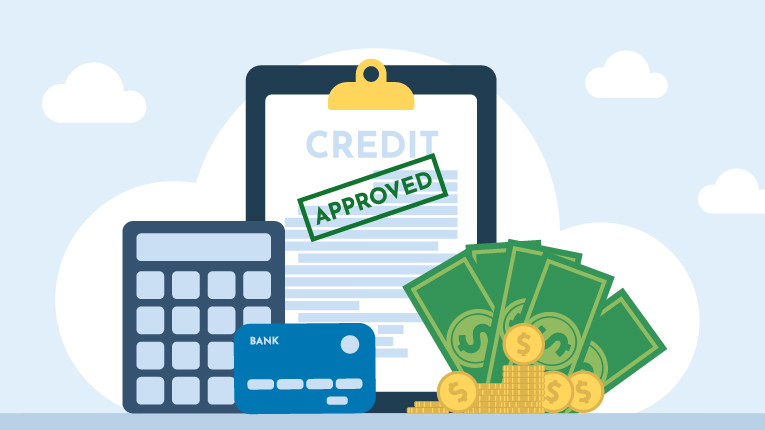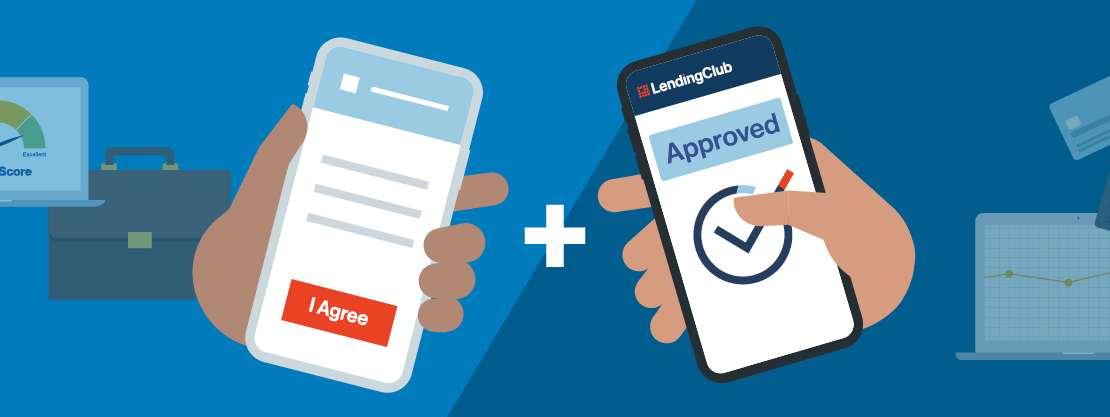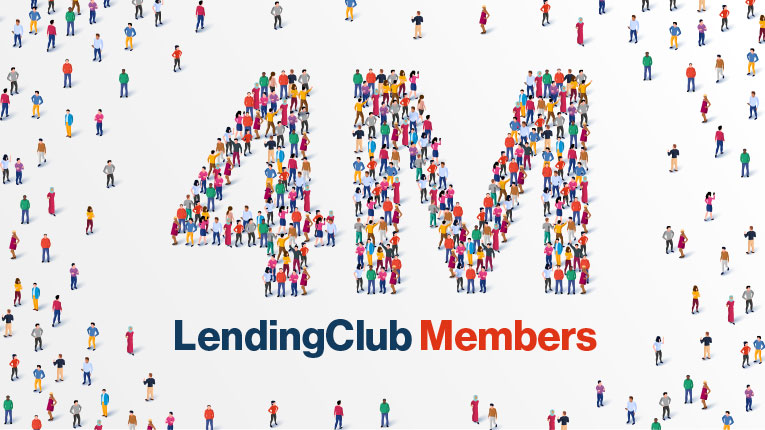How to Improve Your Credit Score

Credit scores are three digit numbers ranging from 350 to 850 calculated from credit bureau reported data that represent a snapshot of your credit health and history. A high credit score is an indicator to potential creditors there’s a higher probability you’ll repay your debt. Lenders
generally offer lower interest rates on personal loans,lines of credit, auto refinance loans, and home mortgages to borrowers they believe are most likely to pay them back—typically those with credit scores in the Very Good to Excellent (about 760-850) range.
In comparison, borrowers with a Fair to Poor credit score (about 670 or lower), or no credit score at all, tells potential creditors there’s a greater risk of repayment, and, as a result, may charge more to borrow money. A low credit score could also cost you in other ways. Property managers and landlords may reject potential renters who don’t meet their credit requirements. A poor credit history could make landing a job more difficult if a credit check is part of the vetting process. Credit history-based scores are also used to set some auto and home insurance premiums.
Increasing your credit score before borrowing can help you qualify for better interest rates, keeping more money in your pocket each month and long-term. So, what steps can you take today to help raise your credit score?
9 Steps to Improving Your Credit Score
The power to get your credit score moving in the right direction is in your hands. Check out nine steps you can take now to improve your credit score and your credit health.
1. Review your credit reports and dispute errors.
Ultimately,credit reporting isn’t a perfect science—errors happen, and incorrect items could seriously damage your score. Pulling your credit report regularly and knowing how to read your credit report can help you catch and dispute mistakes affecting your credit score.
All three credit bureaus provide one free credit report every 12 months (with some exceptions, such as for the unemployed) at AnnualCreditReport.com.Pull your reports and double-check that the following information is correct:
Name
Addresses
Phone number
Birthdate
Accounts and account numbers
Payment history
Credit inquiries (soft and hard)
Check for errors and look for addresses or accounts you don’t recognize. Next, file a dispute if there is an error or an account you don’t recognize. If you find an error in one credit report, it’s smart to check with the other two major credit bureaus in case they contain the same error. You can also check for and contact the reporting bureau about any negative items that are too old to be reported. In the case of a late bill payment, that’s about seven years after a bill first went late.You can dispute with each credit bureau online, by mail, or telephone.
After you file a dispute, credit bureaus have about 30 days to investigate. If information is found to be incorrect, it must be removed. Following the investigation, you will receive a response from the credit bureau.
2. Always pay on time.
Your payment history matters. A lot. More than any other single factor in your credit score, making your on-time payments is critical because the effect of missing just one can linger on your credit report, impacting your credit score, for up to seven years. That’s why if you have any past-due balances, making it a priority to getting current on your payments again could keep your credit from getting any worse.
3. Consider becoming an authorized user on another person’s account.
When you become an authorized user on someone else’s credit card account, you’re effectively putting a portion of your credit score into that person’s hands. This can impact your scores positively, negatively, or have no impact at all. For example, if they use their credit responsibly, it could help raise your credit scores—but if they start missing payments or you both make purchases that they’re not able to pay off in full each month, your scores could be negatively impacted. And if the credit card issuer does not report authorized users’ activity to the credit bureaus, it would not influence your credit rating either way.Make sure you team up with a credit card holder who is using their credit card responsibly, otherwise you might want to remove yourself as an authorized user.
4. Add recurring payments to your credit reports.
Recurring payments such as for utilities, streaming services, and rent aren’t usually included on a credit report, however, some credit bureaus now offer services that may help increase your credit score by taking into account bills you already pay. Experian BoostTM adds on-time utility and subscription payments to your Experian credit report, and eCredable® allows you to add utility payments to your TransUnion report for a small fee. If you make those payments on time each month, you can have them counted toward your score on two of your credit reports. Rent-reporting services will also report rent payments to the credit bureaus for a fee paid by either you or your landlord. So, on-time rent payments can help you build credit history, too.
5. Consider a secured credit card or credit builder loan.
If you’re rebuilding credit or building credit from scratch, consider applying for a secured credit card. Secured cards are often easier to qualify for because they require a security deposit (usually equal to the credit limit) that minimizes risk for the card issuer. Putting small purchases on the card and paying down the balance each month could help you establish an on-time payment history. After a certain number of on-time payments, you may even get your deposit back and offered an unsecured card.Credit builder loans are a type of installment loan that work opposite most loans — you get your money after you repay the loan. The funds are put in an interest-bearing account, and you receive access to it at the end of the loan term or when you close the account. Like secured cards, credit builder loans are relatively easy to qualify for, and on-time payments reported to the credit bureaus can help improve your credit score. Some don’t require a credit check.
6. Use credit lightly.
Suppose you already have access to credit accounts and some history under your belt, but you want to strengthen your credit score before applying for a credit card or loan.Lowering a high credit utilization ratio could be the fastest way to improve a credit score. Your credit utilization is the percentage of your credit limit that is in use. Credit utilization is calculated both on individual cards and overall. Generally, you want to shoot for a credit usage below 30%; the highest credit scorers generally have credit utilization under 10%.
7. Pay down credit card debt.
Increasing card payments, getting a new card, requesting an increase to your credit limit, or paying off credit cards with a debt consolidation loan are all strategies that could help you pay down your debt, lower your credit utilization and help improve your score when the new balances update on your reports.Even if you’re not using a credit card, consider keeping it open unless there is a compelling reason to close it, such as poor customer service or fees you don’t think are worth it, since the available credit line you’re not using could help keep your utilization low. In addition, if it’s an older card, it may contribute to your credit score in the form of the length of your credit history and the average age of credit history.
8. Space out credit applications.
There are two types of credit inquiries—soft and hard. Soft inquiries, such as when you pull your own credit report or when lenders prequalify you for a loan, don’t affect your credit score. Hard inquiries happen when you apply for new credit such as credit cards or loans, and the creditor pulls your credit report to make a decision about your application. That kind of inquiry can affect your credit score.Fair Issac Corporation, or FICO®, says that a hard inquiry generally decreases scores by up to five points. But if you have minimal credit history or many credit checks at once, inquiries can have an outsized impact. So going on an application spree might hurt your score.
9. Get into the habit of pulling your score.
Signing up for credit monitoring and pulling your credit reports regularly can help you track credit score growth and ensure the data on your credit reports are always accurate. Routinely checking your credit scores can also help you see the relationship between what you do and how it affects your credit score. Many banks, credit unions, and credit card companies now offer free credit score monitoring you could follow (but be sure you are using the same score and model to compare). You could also get access to a FICO Score for free with some credit cards. VantageScore® is also available for free from some credit cards and personal finance websites, and checking your own score won’t affect your credit score.
How Long Will It Take to Improve Your Credit Score?
The amount of time it takes to improve your credit score depends partly on the factors that caused or are keeping your credit score low. Recovering from late payments, for example, will take longer than fixing an error that resulted in a low credit score. If you have no credit history, it could take up to six months for scoring models to generate your first credit score, and your credit score can improve from there with on-time payments and using credit lightly if you use credit cards. But past missteps won’t stay on your credit report forever.Generally,late payments stick around for up to seven years, and their impact fades with time. Collections may show on your credit report for up to seven years as well. Filing Chapter 7 bankruptcy can stay on your credit report for up to 10 years, and Chapter 13 for up to 7 years. Establishing new accounts with good payment records can help reduce the impact of past mistakes.
The Bottom Line
Improving your credit score takes time. Consistently paying on time, keeping an eye on credit utilization, keeping credit cards open, and disputing credit reporting errors can help you reach or keep a credit score that gives you access to the best terms on personal loans, credit cards, and other forms of credit. And if you’re looking for a job or a new apartment to rent, improving your credit score could have a significant impact in the eyes of a potential employer or landlord who may want to take your credit health into consideration as part of the review process.
You May Also Like












